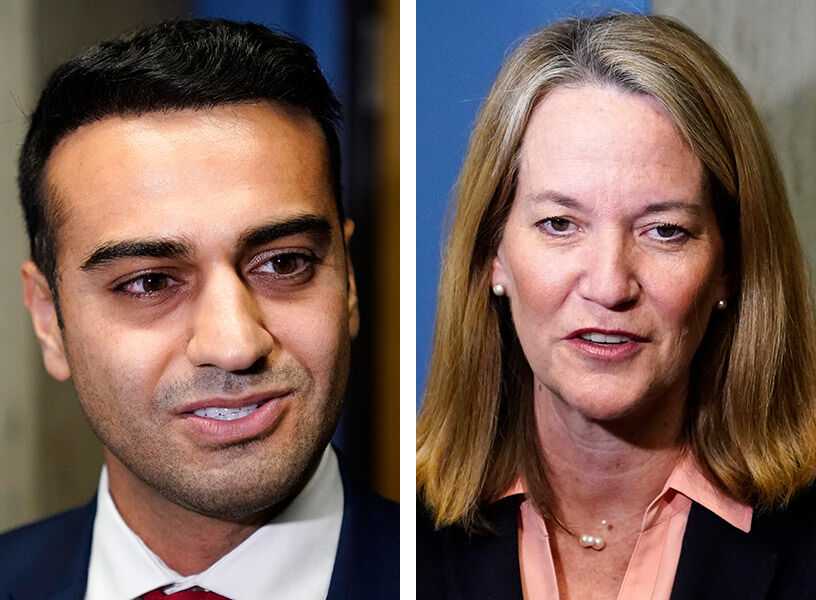PHOENIX — Republican Abe Hamadeh asked a judge Friday to declare him the winner in the race for attorney general despite the fact that the final official tally showed him losing to Democrat Kris Mayes by 511 votes.
Arizona's general election was "afflicted with certain errors and inaccuracies" in how polling places were operated and how ballots were processed and tabulated, said Tim La Sota, Hamadeh's attorney.
"The cumulative effect of these mistakes is material to the race for Arizona attorney general," he said, given the margin of loss in a contest with more than 2.5 million ballots.
La Sota said those errors, taken in total, potentially changes the outcome. And he said that means the tally can be "judicially remedied, and the declared result conforms to the will of the electorate."
The lawsuit provides an extensive list of what La Sota said were problems, particularly in Maricopa County. Those problems, he said, resulted in some people being unable to cast a ballot or their ballots not being counted.
But what may be missing is any absolute evidence that Hamadeh actually would have won had the alleged errors not occurred. And that may keep a judge from declaring the official results void and giving the race to the Hamadeh.
Much of the lawsuit is built around the Election Day issues in Maricopa County.
Problems with printers at voting centers resulted in some of the ballots produced on site not being readable by the tabulators. Voters were given the opportunity to instead deposit their ballots into a separate drawer to be tallied later.
But they also were told they could instead go to a different polling place.
La Sota said election workers at some sites failed to check the voters out before they left. The result: when they showed up at the new site the electronic records showed they already had cast a ballot at the previous location.
La Sota identified at least 495 voters who fell into that category and whose new "provisional" ballots were not counted. But he also said a "material number" of other voters who showed up at a second site who were not even granted an opportunity to cast a provisional ballot "in violation of Arizona law."
The lawsuit also alleges errors in manual duplication of ballots when the originals could not be read by the tabulation equipment. While La Sota could not put a number on that for this election, he said ballot duplication boards erroneously transposed at least 0.37% of ballots in the 2020 presidential preference primary.
And then there's the question of early ballots.
La Sota said election workers are supposed to compare the signatures on the envelopes with what is on file on voter registration records. If they do not match, he said, the ballot cannot be counted unless the voter "cure" the discrepancy within five days after the election.
What happened here, La Sota said, is Maricopa County officials chose to tally early votes if the signature on the envelope matched some other document, such as an early ballot affidavit submitted at a previous election or a signature on a poll book roster. That, he said, is contrary to state law.
La Sota also said that about 1,942 people were given provisional ballots because it was determined they were not registered. More to the point, he said, those ballots were not counted.
"A material number of these voters who had their ballots rejected had voted in past Arizona elections an had done nothing to invalidate their registration," he said.
Dan Barr, attorney for Mayes, said he expects the challenge to fail.
A nearly identical challenge was filed after the election. But it was dismissed because Arizona law permits such legal action only within the first five days after the formal canvass of votes, something that did not occur until Monday.





